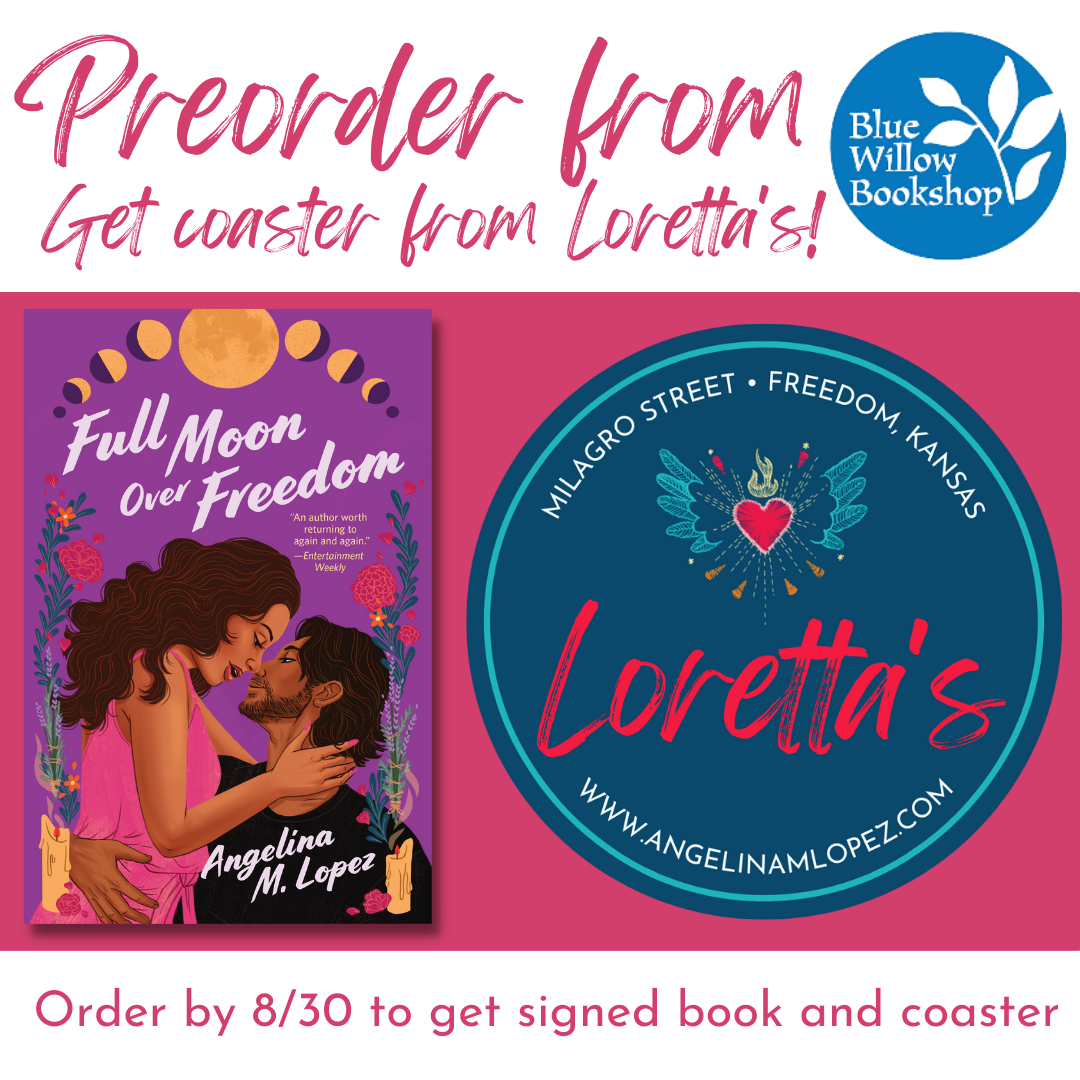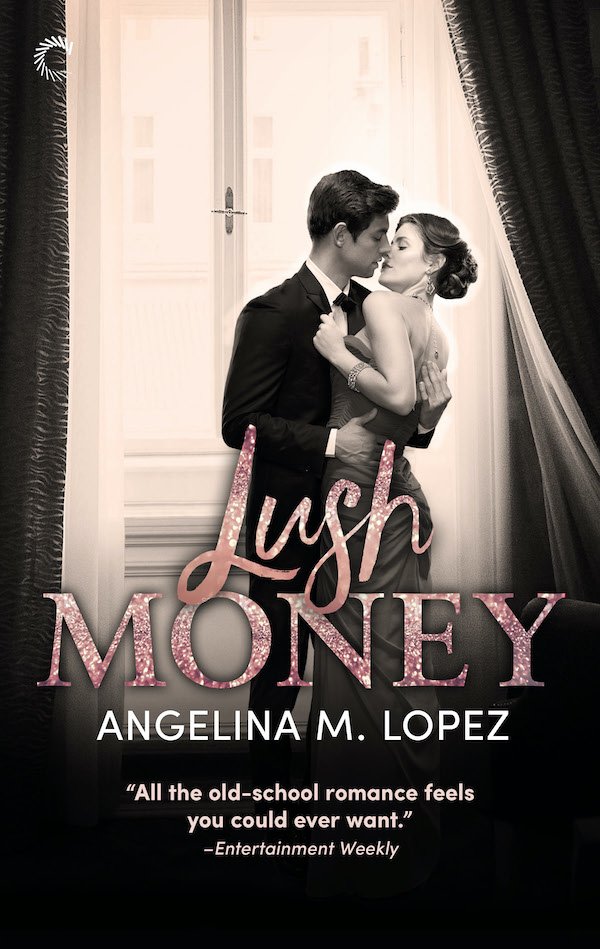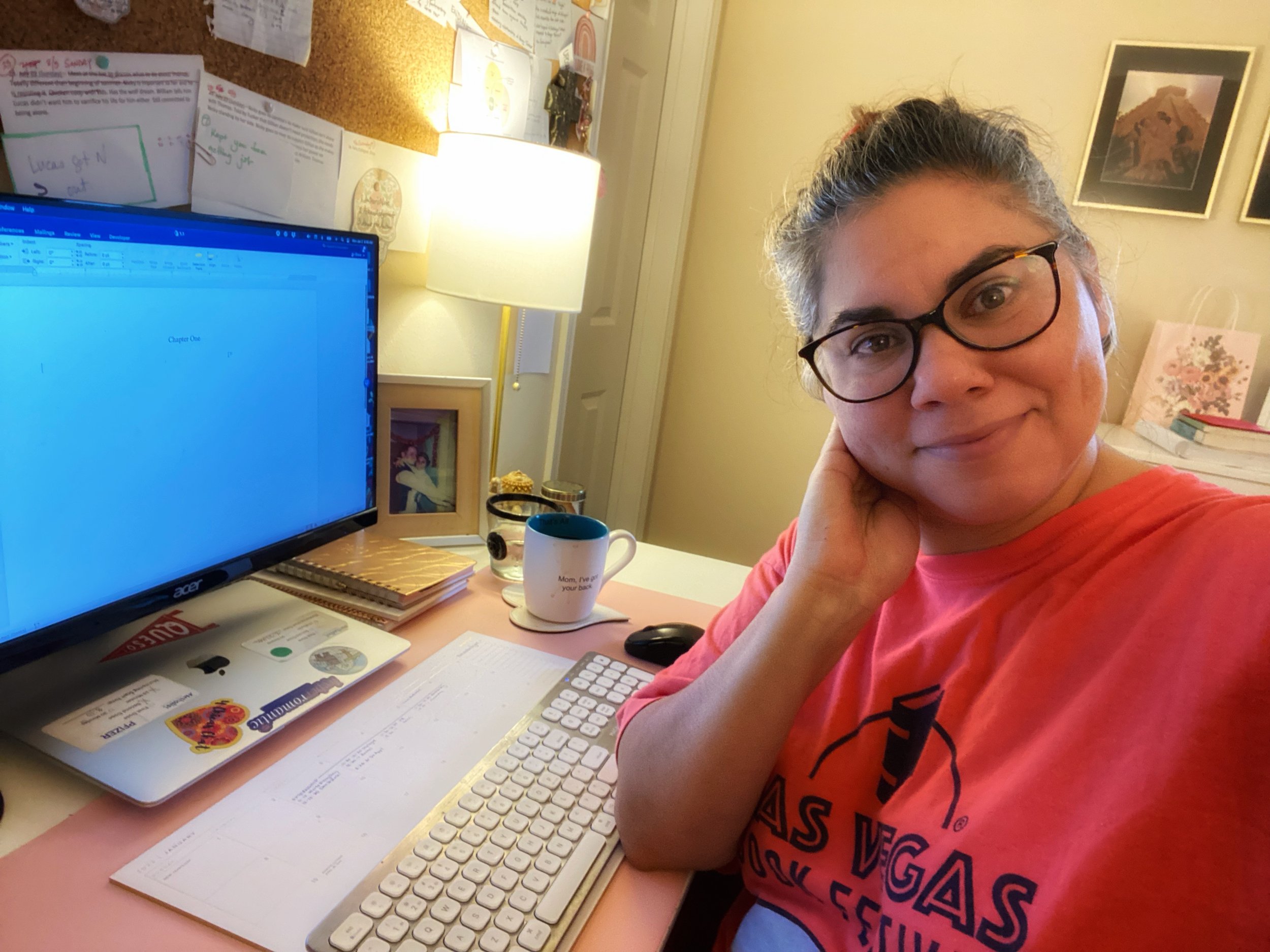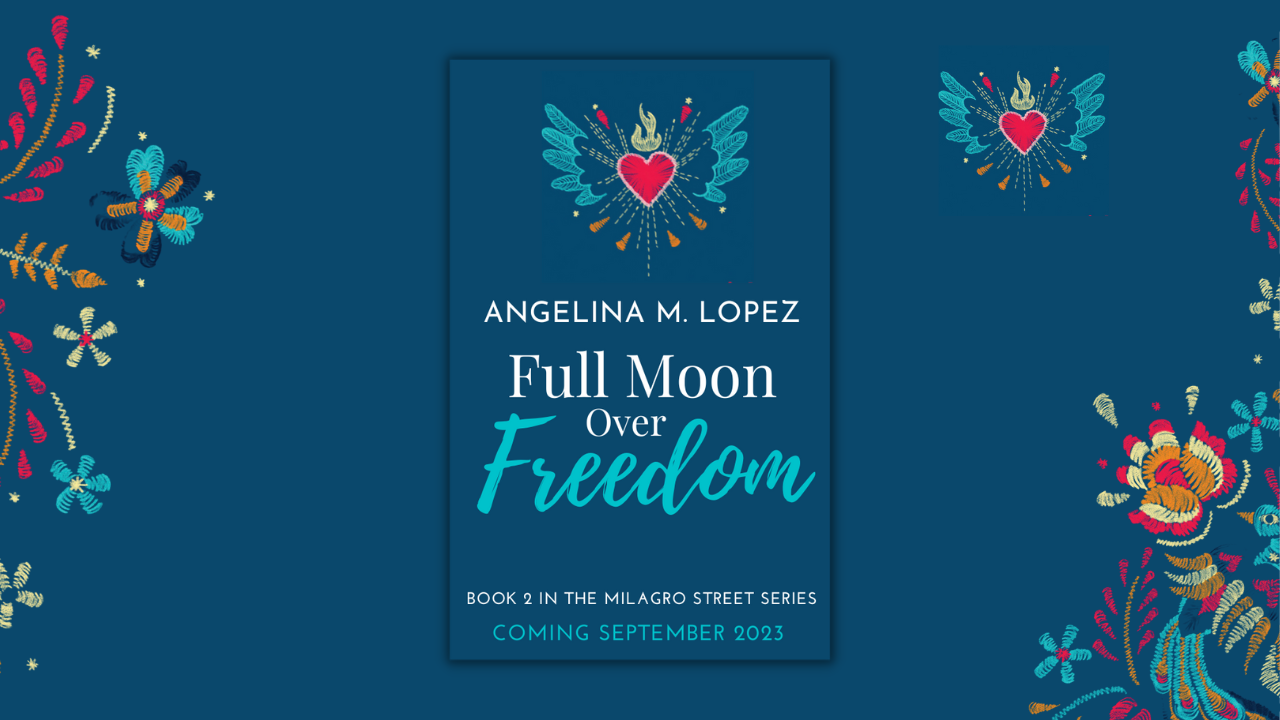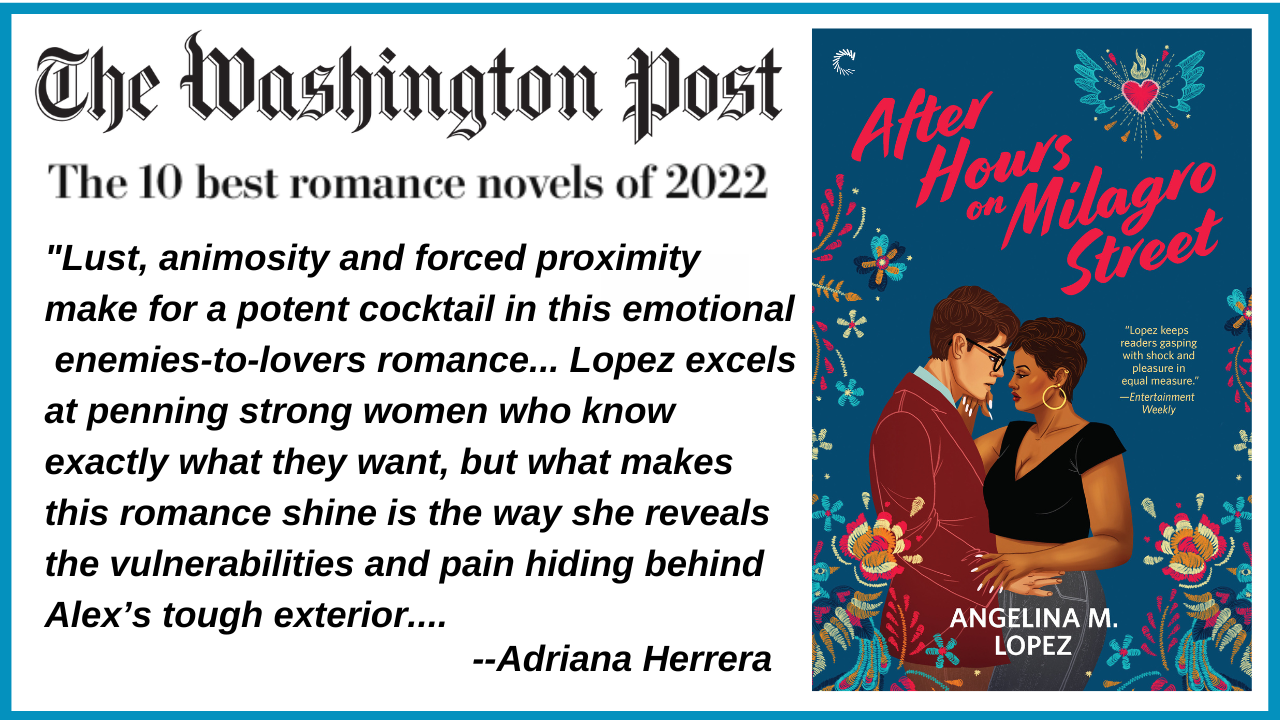In 2011, I finished my first book. It was a stormy Saturday when I typed THE END, and I turned to my husband, who was sleeping on the couch, and whispered, “I’m done.” It felt like there should have been a parade marching through our study and fireworks exploding.
That book was called Don’t Want Your Freedom, and it was about a divorced mom of two, Gillian Armstrong-Bancroft, who returns to her hometown of Freedom, Kansas hoping to be able to leave by the end of the summer. There, on the side of a country road, she runs into childhood friend, Nicky Phillips. After some misunderstandings, the two begin a summer fling they both swear will be “just for the summer.”
Sound familiar?
On September 5, Full Moon Over Freedom, my book about divorced mom of two Gillian Armstead-Bancroft and her pining childhood friend, Nicky Mendoza, will be released. This second book in the Milagro Street series is a wildly reinvented version of that original first book. That first book won an unpublished author contest but, rightfully, was rejected by the agents I sent it to. It went under the bed and a lot happened between then and now.
As I look at this completing full circle, with twelve years, a metamorphosized romance industry, and five traditionally published books under my belt, it makes me think about what I would say to that young, hopeful writer on that stormy day.
Here’s the advice I would give to my younger self about:
The Biz
1. You’re not going to be special. I know this seems harsh. But while we all hear about the hardships in publishing, we all assume those hardships won’t happen to us. We all believe we’re going to be the one break-out author of the season. How many people have said something about you being, “The next Stephen King…J.K Rowling…Colleen Hoover…” Trust me, you’re not. The sooner you can embrace the climb of being an author, the happier you’ll be.
2. You’re not going to make as much money as you think. Your numbers and expectations are SOOOOOOO WRONG. Call an author with your publisher and asked hard truths about income. Talk to the million of authors you know and ask about the financial side. Most of us are not making what even amounts to a part-time job and never will. That’s the cold hard truth.
3. Listen to your gut. Always. Go with it. Every time you do, even when others disagree with your decision, the end result is what you want. Every time you don’t, you regret it.
4. Be kind, but straightforward. Be polite, but advocate for your best interest.
My Fellow Folks in the Publishing Biz
5. Share everything you learn. Share what you know. Mentor less-experienced authors. Give what you learn away (in informal conversations; if somebody wants you to speak or lead a workshop, GET THAT CASH!). Always do it in good faith and with a good heart. Helping others will help you pull your head out of your butt during your worst moments.
6. Be careful who you listen to. You’re going to meet so many incredible people in publishing and get so much amazing advice. But as you learn more and get further along in the business, it will be important to avoid taking everything you hear as fact. Bad info on a bad day can send you spiraling.
7. Ask a million questions. You’re going to be told a lot, “That’s just the way things are.” Ask why, even when you’re made to feel like you’re not supposed to ask questions. This business is opaque and there are a million “that’s just the way things are” that make no sense. Push back. Be a pain. Ask questions.
8. Don’t actively make enemies. The publishing world is tiny and every person you run into, you will see again. If you have nothing nice to say, don’t say anything at all. Take a lesson from the writer we know who goes around giving other writers low-starred reviews. You will need to hold the hands of others to survive and rise, so don’t slap those hands away.
Promotion
9. Set hard limits around social media. Set a schedule for when you will post and check social media. Stick to it. Social media will be the number one sapper of your joy. You will see friends, wonderful, talented friends, lay down their pens because of the toxicity of social media. Set hard limits early and stick to them. Once you figure this out, you will be so much happier as a writer and person.
10. Hype your book and your writer self. No one else will. No one will love your book, your characters, your writing, as much as you. You’re an introvert writer who isn’t built to self promote. Self promotion is THE LAST thing you want to do. But no one will love your book as deeply as you do, so promote the crap out of yourself and that book to make sure those characters get to sing in as many readers’ heads as humanly possible.
11. Be willing to do the small stuff. As a traditionally published author, it’s going to be pretty opaque about what you do versus what your publisher does. Be willing to do it all. Set up your book launch events. Contact podcasts. Offers ARCs (POLITELY) to influencers (this one is soooooooooo hard!). Promote your book. Contact organizations and offer yourself as a speaker. Don't be too proud (see Rule No. 1).
Being A Writer
13. Do the unglamorous job of setting routines. Writing romance is not a sexy job. But it makes you happy. Set a schedule for your writing and marketing and stick to it. You'll discover that the muse does come when she knows what time to show up.
14. Believe in the process of drafting, revising and editing. You’ve heard about a certain famous romantic suspense author’s ability to write a perfect first draft from her outline and it will screw you up for a few years. It will take you an entire week to write 250 words. Every word will be a pound heavy and land on the page like permanent ink. Don’t do that to yourself. You will never be happier than when you learn how delete-able those words are. Once you lean into the process of messy first drafts, revising, and editing to get to a book you love, you, your characters, plots, scenarios, and books benefit from it. You’re going to write a book with a ghost in it!
15. Meet your deadlines. Communicate early and often when you can’t. When you meet your deadlines, you build goodwill for the times when you need some leeway.
16. There is no such thing as perfect. You will never reach the top of the mountain, not in your writing or career, because there is no such thing. Once you reach the mountain top, the clouds clear and there is just another peak or valley. Or a new mountain. So don’t strive for perfection. Strive for a good writing day. Try something new. Learn more. Share something with someone who needs to hear it. That’s far more satisfying than the mirage of perfection.
17. Celebrate the wins. There are so many unwashed-and-in-yoga-pants days. There are a lot of frustrating days when this road seems to be going in the wrong direction. So when you get a win, no matter how small, celebrate it. Share the wins with the loved ones in your life so that, if you forget to celebrate it, they’ll remind you. (Thank you, Peter!)
18. Love the process. Love your characters. Love your words on the page. There are going to be cold, grey days in February when all you’ve done for a month is sit at your computer. And that’s okay. Because, weirdly, you’re happiest at that computer, making up people doing made up things. If that’s where you’re going to be most of the time, you might as well love it. It’s okay to love it.
19. Remember: The books you write are your legacy. What do you want your legacy to be? Is it that the books you've written spread a message you value to the world? Is that they provided some financial support to you and your family? Is it that they were the soft landing after a reader's hard day? We don’t talk enough in romance about the importance and value and permanence of our books, but they are our legacy. Be proud of what that legacy is as you develop your career. Be proud of what you leave behind.















